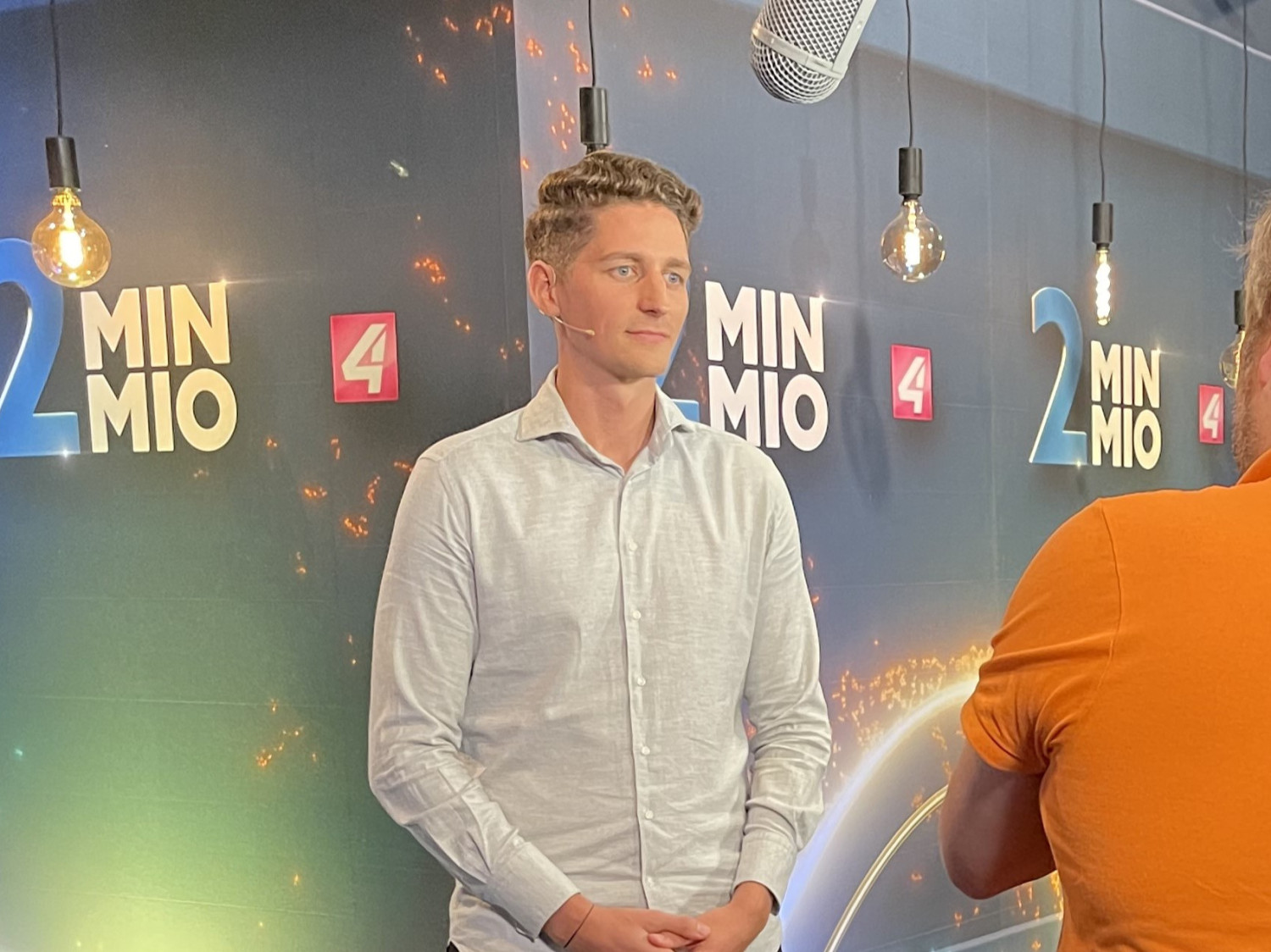Christophe Vermeersch, founder of Everleaf, is more than just a maker - he is a visionary. His hydroponic indoor garden makes it possible to grow vegetables without a garden or balcony.
In this interview, he tells us how he went from an idea to a production-ready product in just under 1.5 years and what role Happylab played in the process. For Christophe, Everleaf Garden is more than just a product. It is his mission to contribute to a healthier and more sustainable lifestyle.
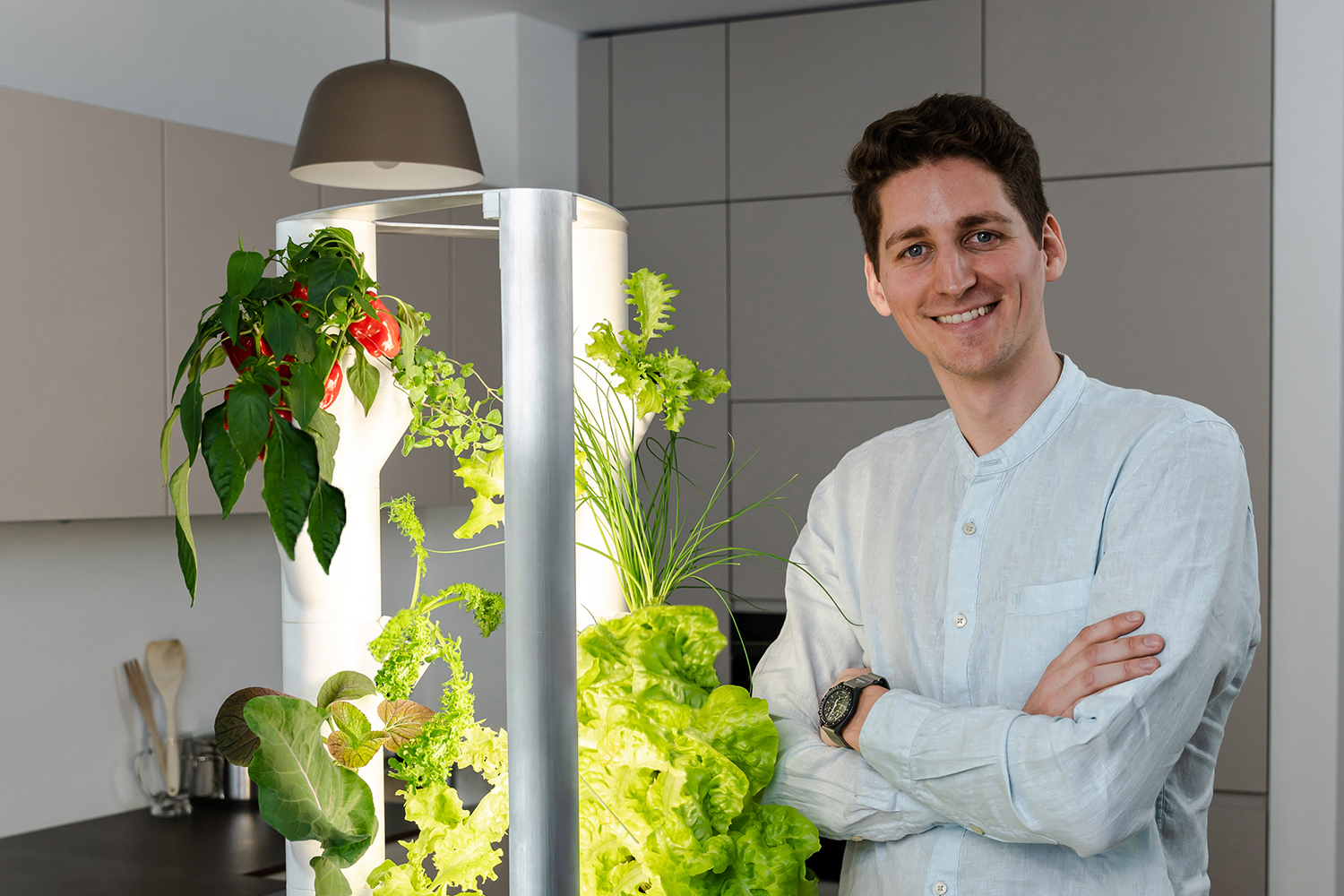
What makes you a maker?
Christophe: I would say my approach is definitely that of a maker. I started developing the idea of an indoor garden in August 2022 to enable anyone and everyone to grow their own vegetables at home. In the simplest way possible with a garden that is as automated as possible. To do this, I quickly collected parts from the DIY store and cut and sawed them to test what something like this could look like with drainpipes. So I just went for it, I would say. I think that's what makes a maker, that they don't think long and hard about whether it's a good idea or not, but try it out and see what comes out of it. That was my approach and I think it worked quite well.
Please tell us a bit about your background.
Christophe: I did a Bachelor's degree in Aviation Management. At that time, I wanted to become a pilot and gain a foothold in the airline industry. But then I decided to do a Master's in Management to familiarise myself with a broader management spectrum.
After my Master's degree, I founded my first company in Germany. It was a furniture rental company that allowed people who were only living somewhere for a certain period of time to rent furniture. After that, I held various positions in marketing at large companies. I really enjoyed doing that. But I missed the sustainable aspect. I was then able to integrate this into a company in Austria that specialises in vertical farming and grows and markets products such as micro greens and innovative salads. I built up the B2C area there. However, it was very challenging as production is very expensive. The energy crisis made things even more difficult. That's when I decided to do something of my own again.
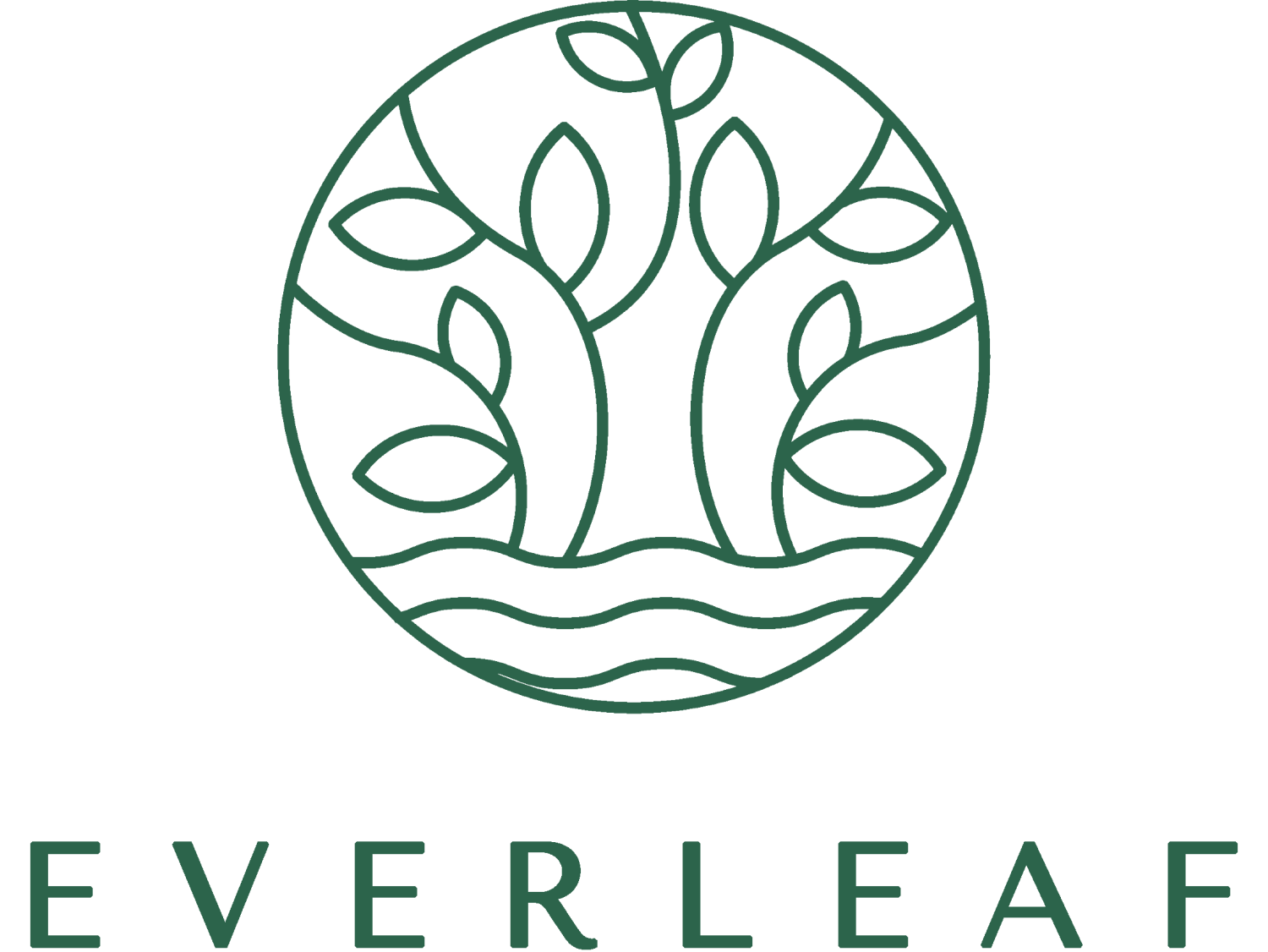
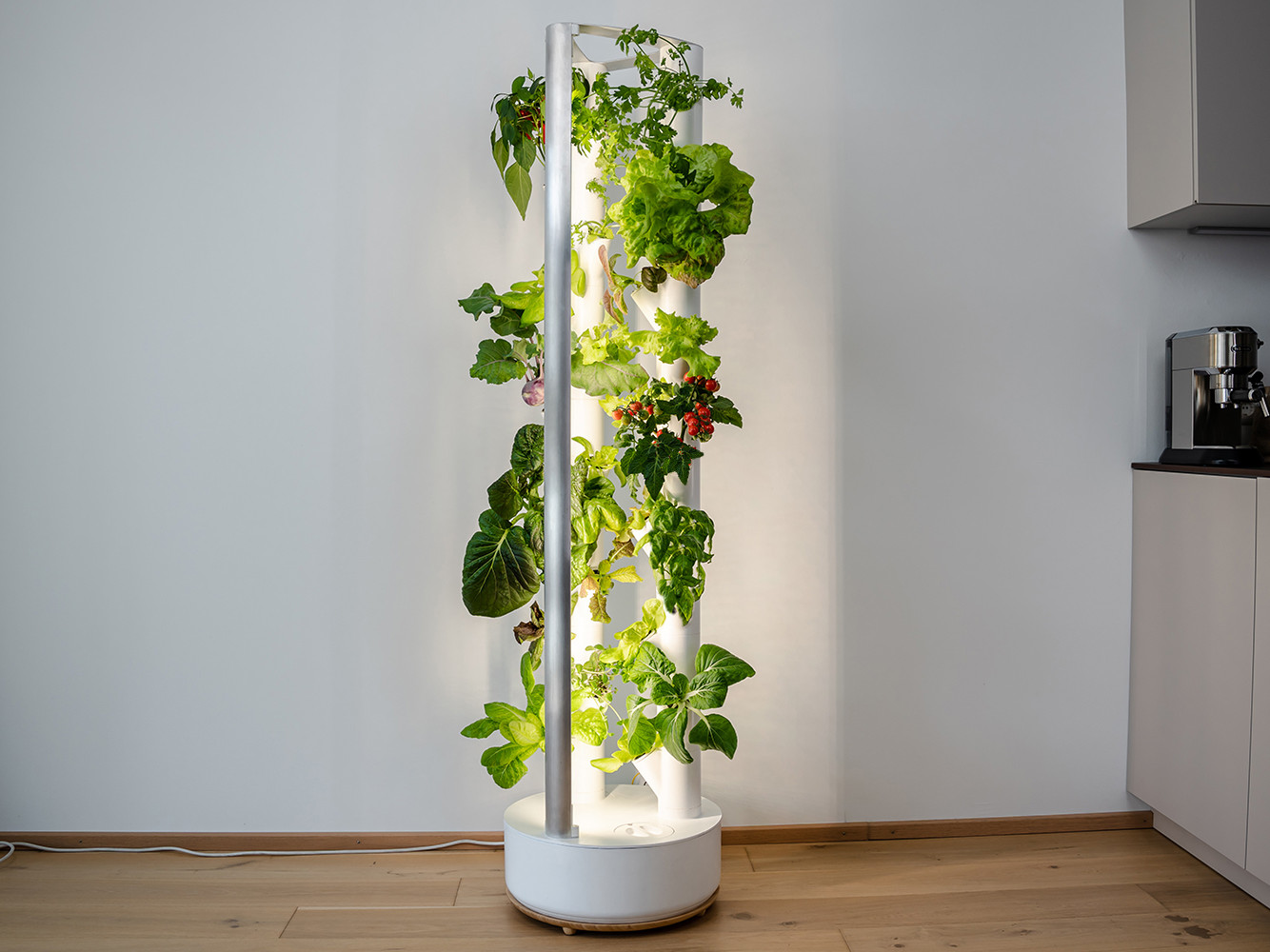
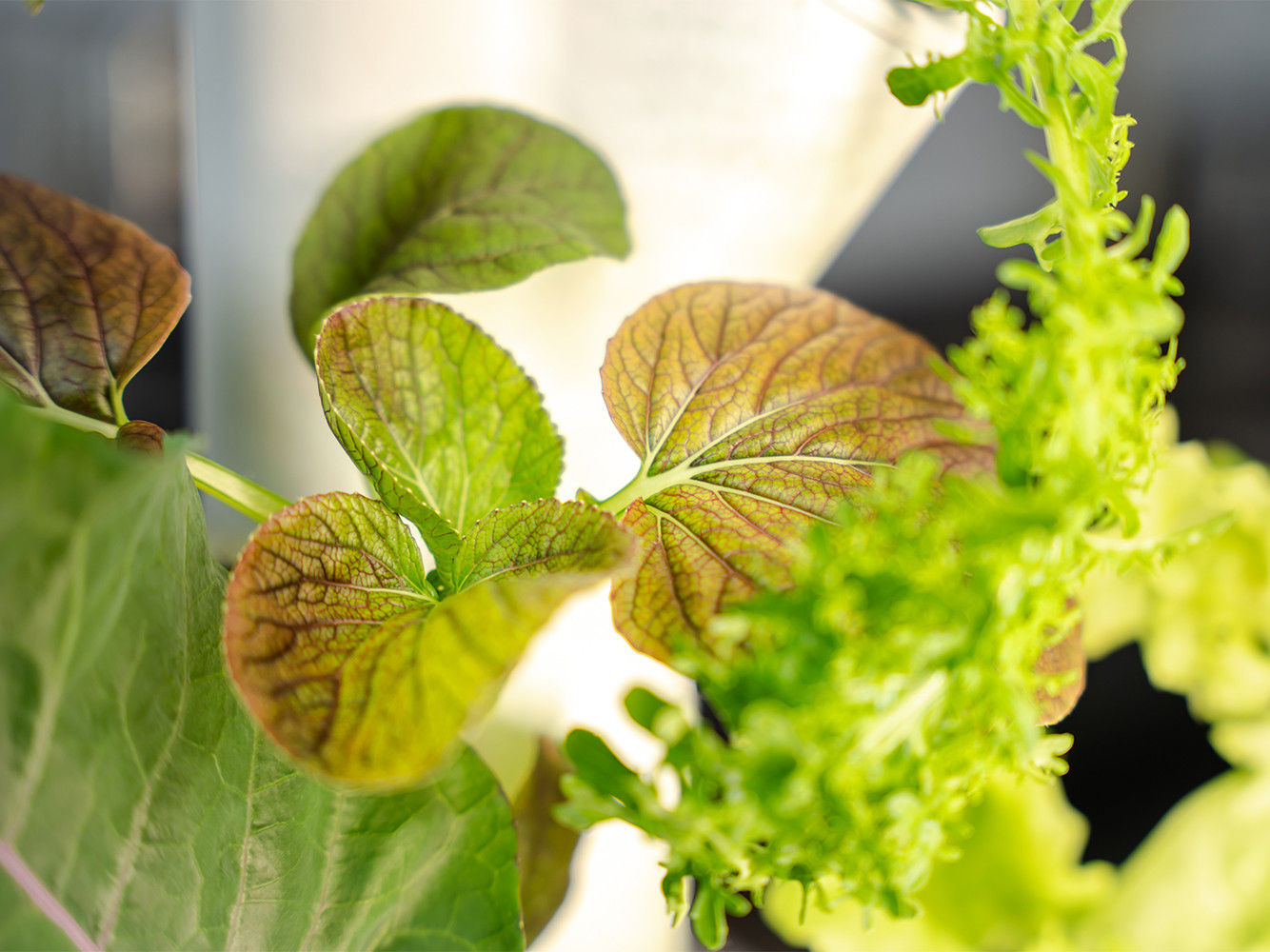
You then developed a very special product - Everleaf Garden. What is the idea behind it?
Christophe: I wanted to make a contribution against food waste and in favour of better nutrition. And I looked at different business models in these areas. The idea was to create something that makes modern self-sufficiency possible - even if you don't have a balcony or garden. Of course, you can't replace conventional vegetable production with an indoor garden like the Everleaf Garden. But you can at least make a small contribution to producing more food, which may help to reduce the need to clear forests for arable land.
Everleaf Garden is a hydroponic garden with a very simple design. It is a pump with an LED strip that illuminates two columns of plants. Hydroponics means that no soil is needed. The plant roots hang freely, so to speak, and are watered directly. Vegetables, herbs and flowers grow much faster than in soil because more oxygen can be absorbed. In addition, this cultivation method uses 95% less water than conventional agriculture and is therefore much more sustainable. We have even patented our hydroponic technology. The columns allow the water to fall silently via special inner tracks, which is particularly advantageous for domestic use.
Up to 24 plants can grow in the Everleaf Garden at the same time - and in a very small space. I only need an area the size of a floor lamp - i.e. no more than 45 centimetres in diameter. You can grow tomatoes, cucumbers, peppers, lettuce, all kinds of herbs, etc. and then harvest them all year round, even in winter.
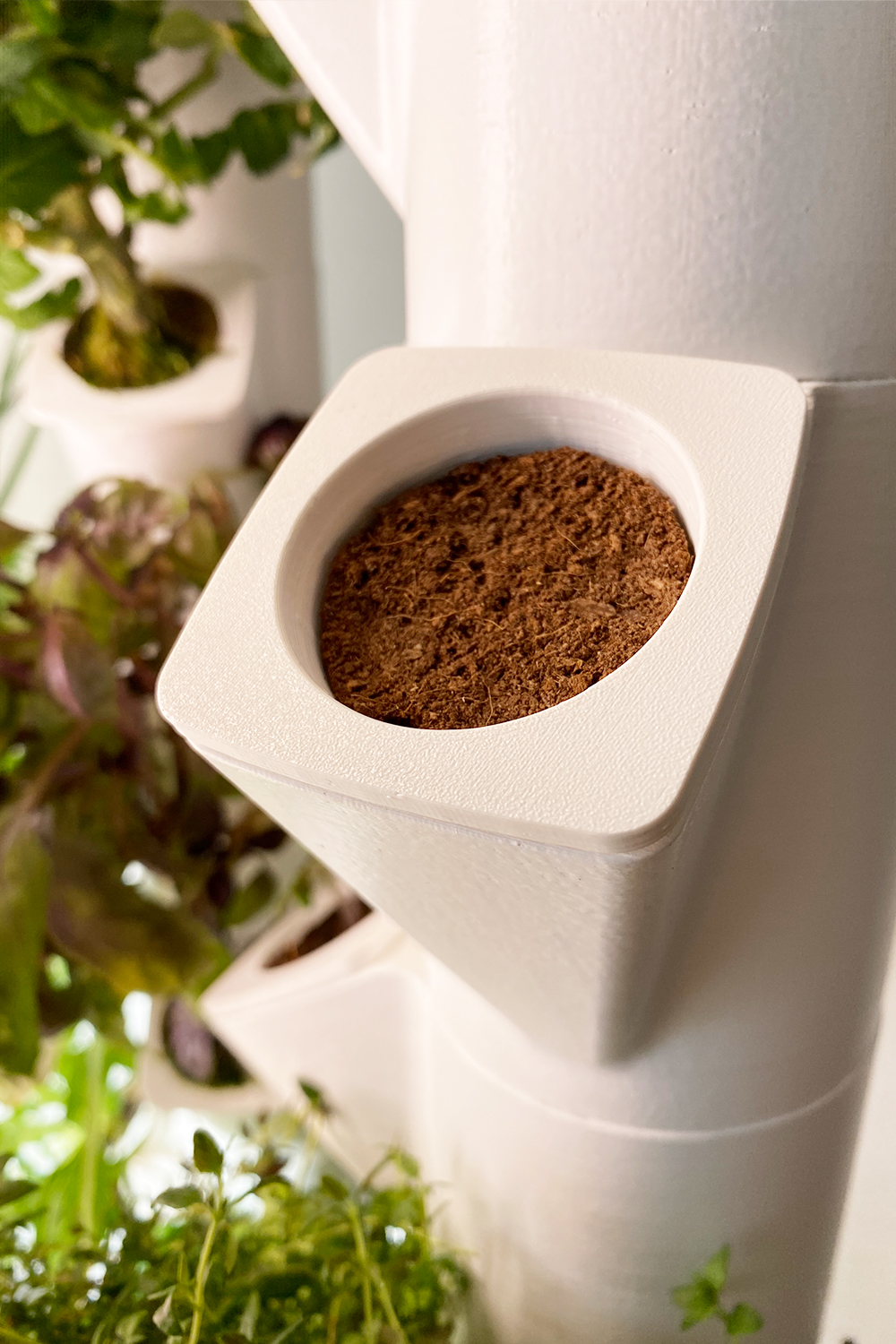
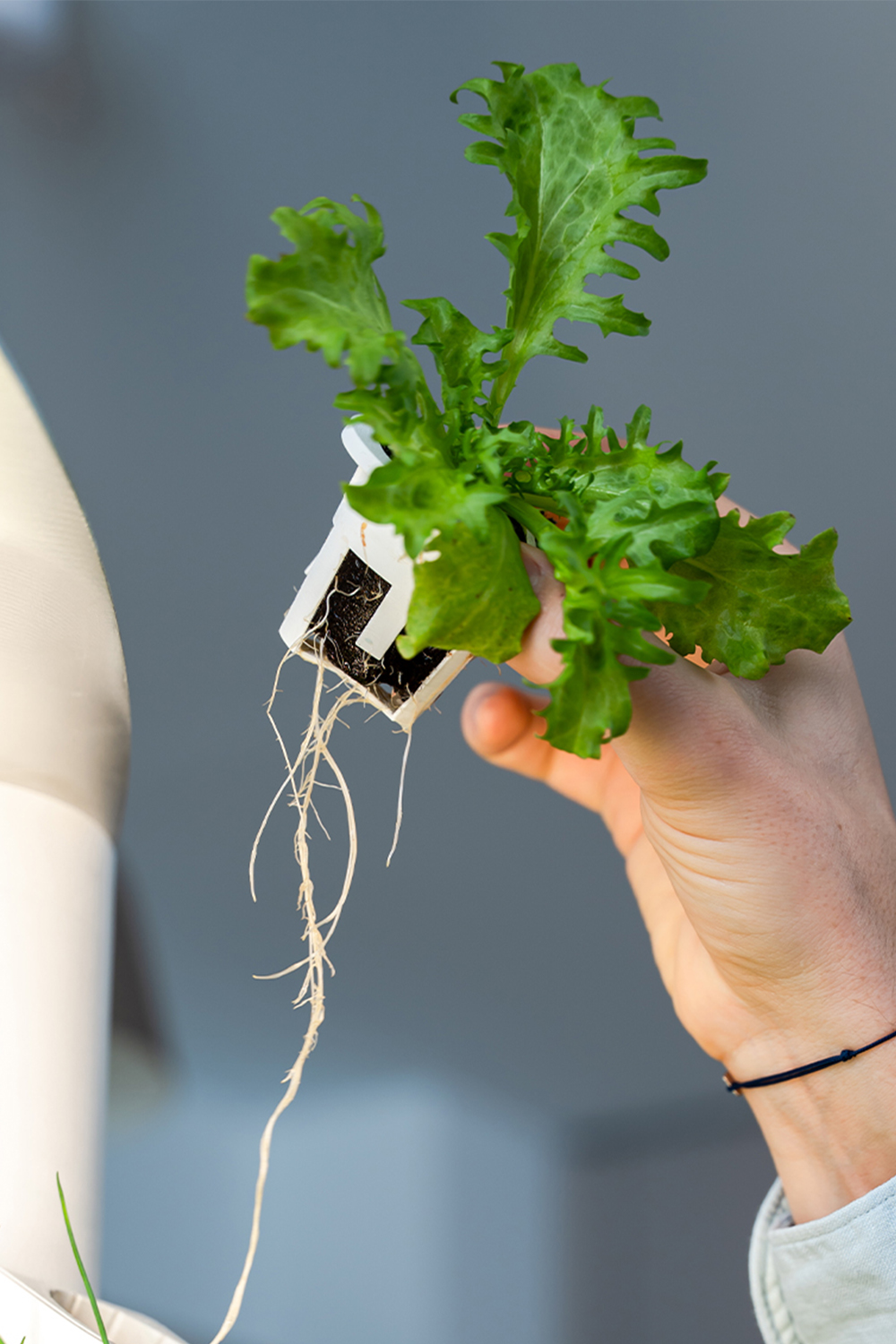
How did you use the Happylab in the development of Everleaf?
Christophe: In the first phase, I did a lot of sawing and gluing myself and had a look at what it might look like. Then I worked with a design office from Vienna, who drew all the CAD models for me. In autumn 2022, I was finally looking for a makerspace where I could work and came across Happylab.
I then built all the first prototypes in Happylab, especially a lot of 3D printing. And then I also did all the iterations here. Because I also customised a lot myself.
I don't know how many 3D prints I made. But if I had to extrapolate, it would probably be several thousand hours that I printed.
Without the possibilities here, I wouldn't have been able to realise it. Injection moulding would have been far too expensive as an alternative. So I was able to make progress relatively cheaply and get a product ready for series production fairly quickly.
What machines did you use in your work?
Christophe: I definitely used the 3D printers and the CNC milling machine the most. But I also used all kinds of tools from the hobby workshop, the laser cutter and the plotter. And I also experimented a bit in the finishing room.
Were there any challenges during the development process?
Christophe: The biggest challenge was a legal one. There were problems with a competitor and I had to adapt the design, even though we were already very far along in the production process. That took several months and was very stressful.
There were actually very few difficulties during the development of the prototypes. Everything worked very well right from the start. I was lucky. Who knows whether I would have continued if it hadn't worked out so well. The advantage was, of course, that I worked with professional engineers right from the start.
And when I had questions about machines, Lukas was my number one contact here at Happylab. He is an absolute expert when it comes to 3D printing and CNC milling and always knows a solution to any problem.
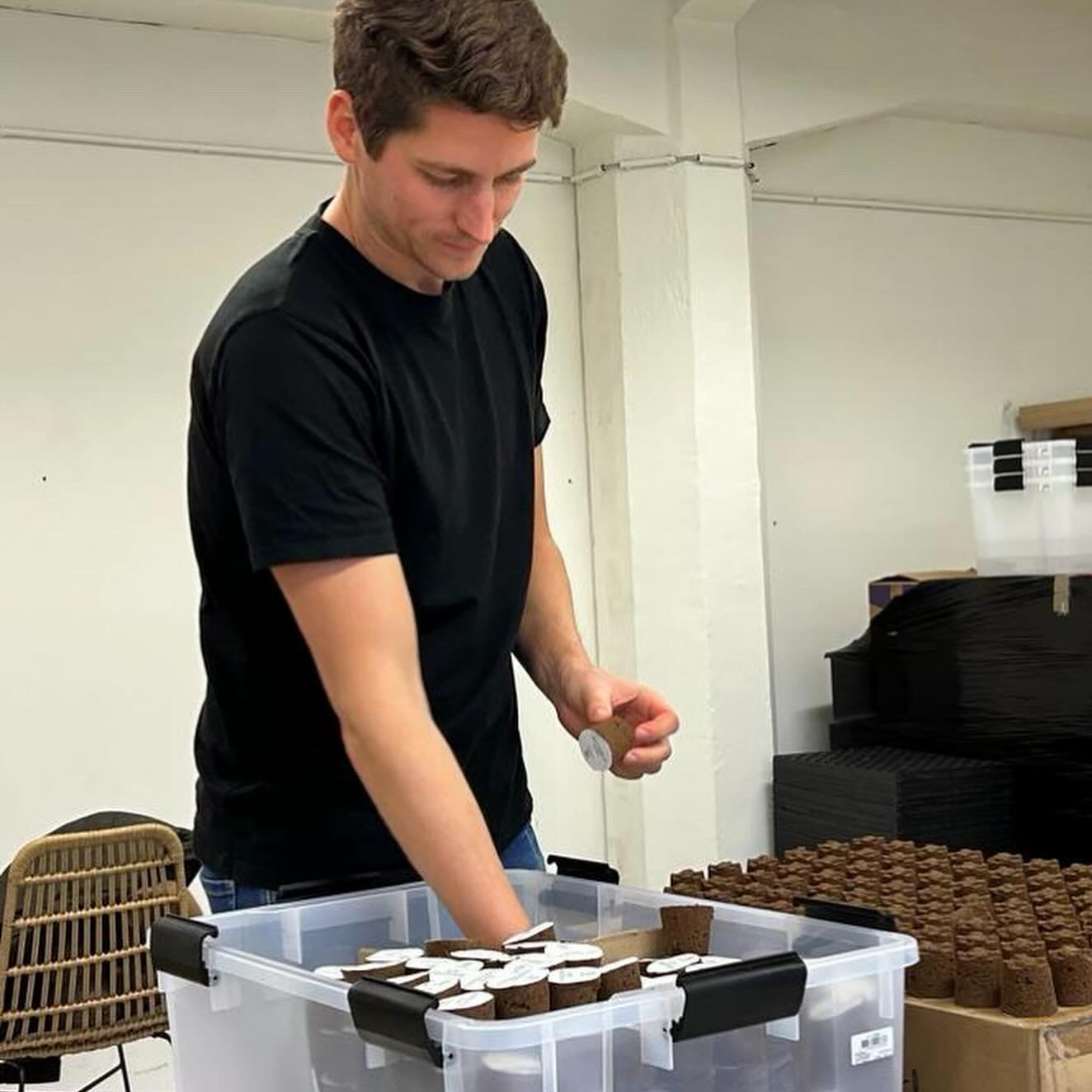
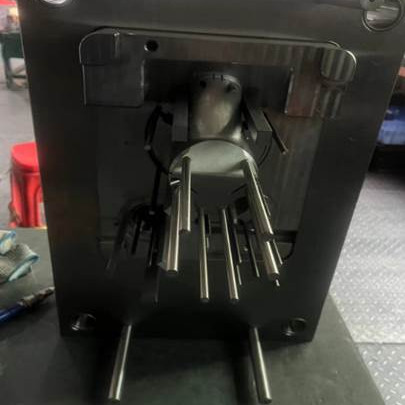
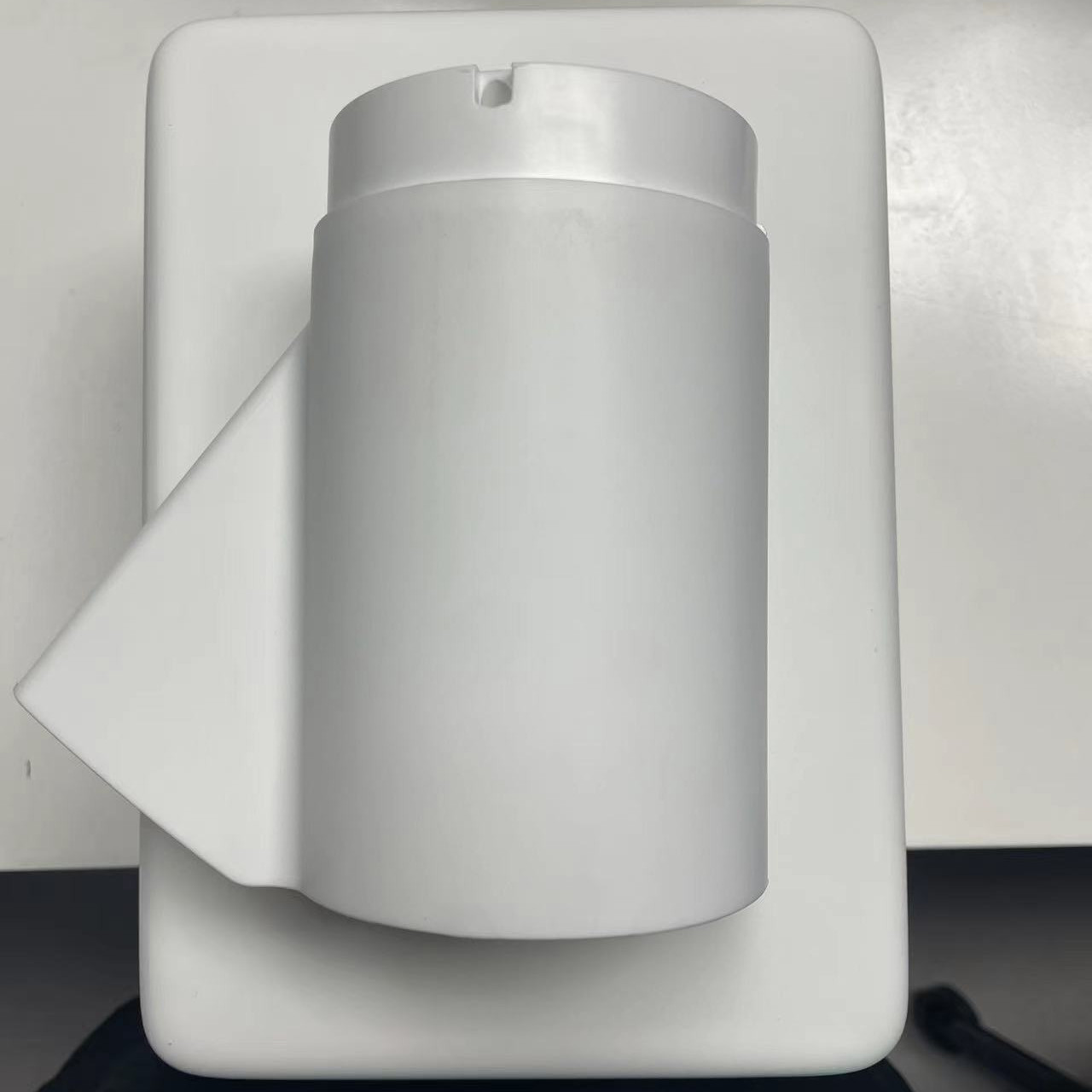
In February 2024, you were at 2 minutes - 2 million and received an investment. How was that experience?
Christophe: It was very exciting and also interesting to see how a TV show like this actually works. I was also very nervous and prepared for this pitch for over a month and could have recited everything in my sleep. I really wanted to look confident. Fortunately, everything went well and I got the investment.
Of course, a few investors were critical because similar products had failed on the market. But my product has a different structure - very minimalist, affordable and easy to use.
What does this mean for your company?
Christophe: On the one hand, the financial aspect is of course a great support, especially now in the start-up phase. But Michael Grabner is also very well connected as a media professional - hopefully that will open doors for me and help with product placement and marketing. In any case, we meet regularly, exchange ideas and have already come up with many new ideas.
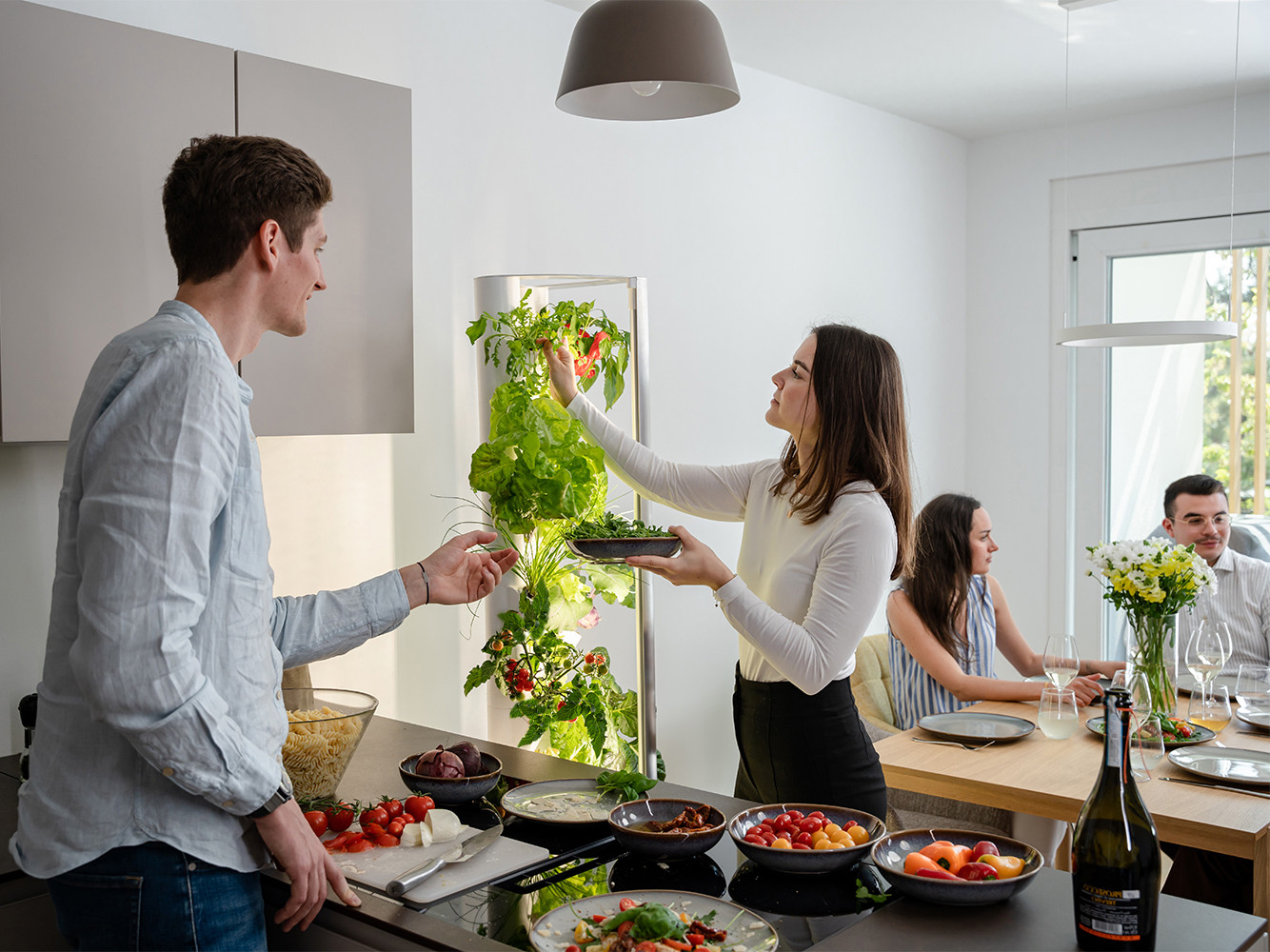
What advice would you give to people who have an idea and would like to develop a product, but don't really know where to start?
Christophe: I already had start-up experience and have learnt from my mistakes. In any case, it is important to validate your idea as quickly as possible. So is there even a market for it? Are people willing to pay a certain price for it? This works well these days with online marketing tools. So building landing pages, placing adverts and generating leads, etc.
And on the other hand, you should of course develop the product as quickly and cost-effectively as possible and let people test it. Special features are nice to have, but also increase the costs. So it's better to start simple.
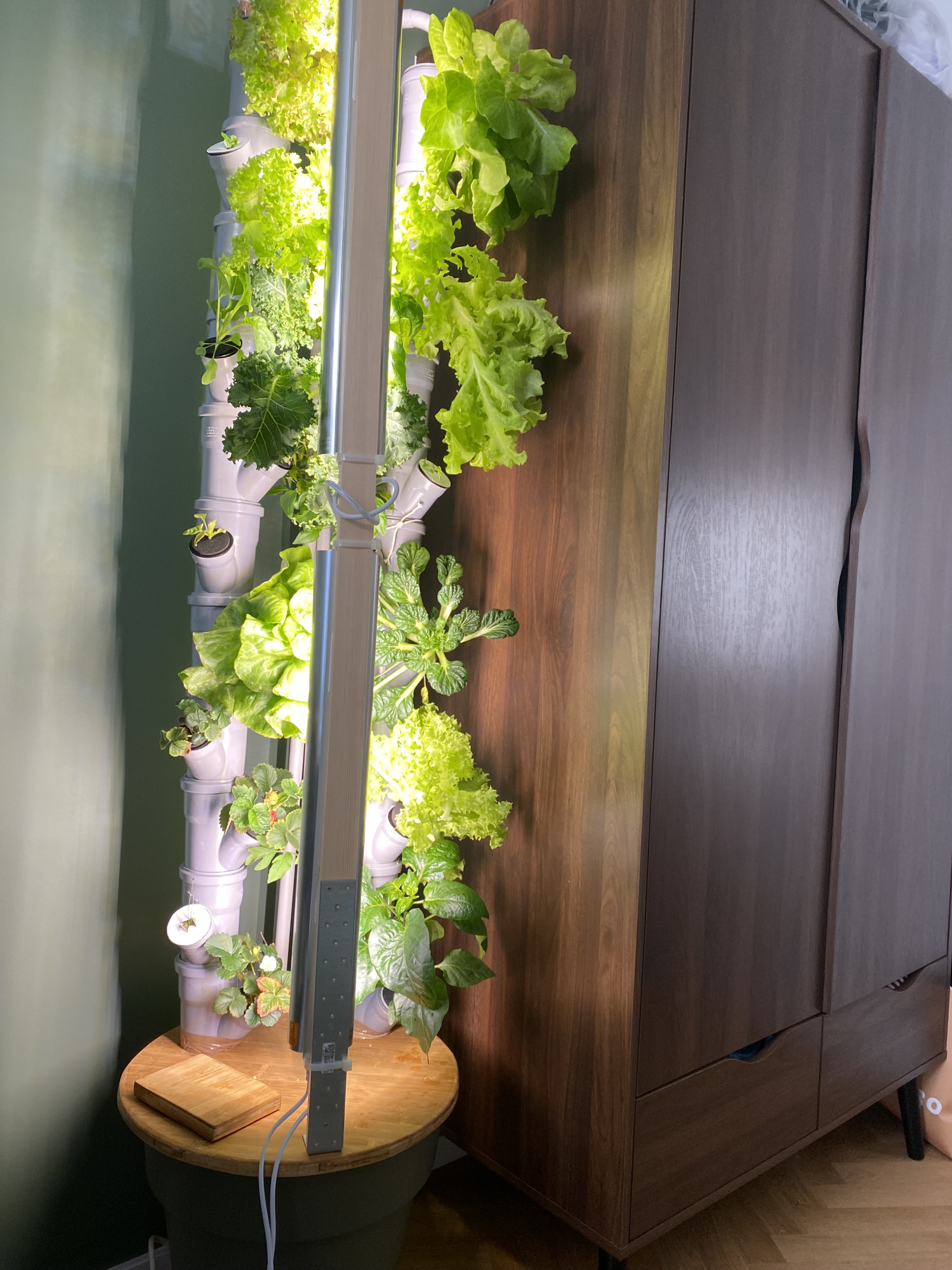
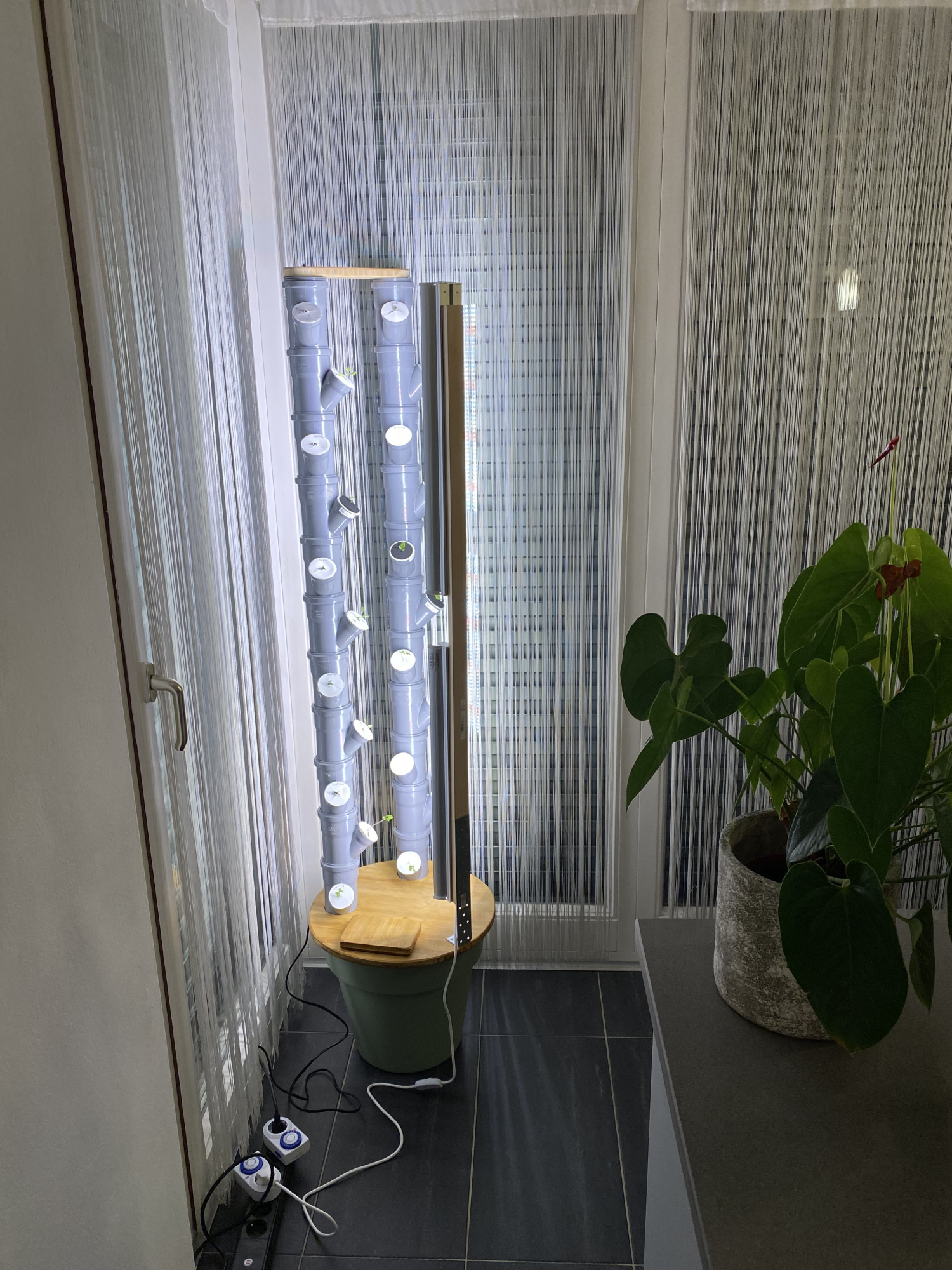
What are your plans for the future?
Christophe: Over the next few months, I will be focussing on production and delivery. The people who are now receiving the first Everleaf Gardens should have an experience that is hopefully more than satisfactory. Of course, it would be ideal if this resulted in organic growth. At the same time, another round of financing is on the cards to fund marketing and the next product batches.
My long-term goal with Everleaf is to develop a product range that not only provides products for indoors but also for outdoors and encourages people to grow their own vegetables. There are a lot of ideas for product extensions in this direction. I will certainly develop prototypes in the Happylab again.
My vision is that Everleaf will one day characterise the entire cityscape and make it greener. And at the same time help people to eat healthier and more sustainably.
Thank you for the interview, Christophe, and good luck for a green future!
